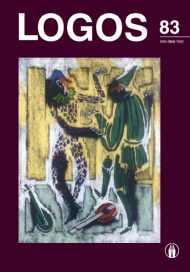Ciklinio Ir Linijinio Laiko Problematika Mircea Eliade’s Kūryboje
The Problem of Ciclic and Linear Time in Mircea Eliade’s Works
Author(s): Tadas ČapanauskasSubject(s): Epistemology, Existentialism, Philosophy of Religion, Ontology
Published by: Visuomeninė organizacija »LOGOS«
Keywords: ciclic time; linear time; sacrum; profanum; homo religiosus;
Summary/Abstract: This article discusses problems of cyclic and linear time in Mircea Eliade’s works. The context of historicity in Eliade’s works reveals homo religiosus’ independence of symbols and archetypes from historical circumstances. Although, the religious person acts as a historical subject, but individual’s projection of religious existential ideals is not specifically dependant on the historic environment. The religious human finds meaning in a context of cyclic time. Cyclical time is a religious time which breaks a homogeneous space structure. Homo religiosus people of different epochs and civilizations share perennial religious experiences, which are independent from the historical contexts. These common factors reflect the universal being of religious human phenomena. This work also deals with linear and cyclic time models. It emphases the limitations of the contemporary human’s existence in the context of modern technology and the space and time model. This article also discusses the problem of the cyclic time concept of Friedrich Nietzsche, which reveals the inevitable attempt of the Western tradition to find an alternative model to linear time model entrenched in Western culture.
Journal: LOGOS - A Journal of Religion, Philosophy, Comparative Cultural Studies and Art
- Issue Year: 2015
- Issue No: 83
- Page Range: 203-209
- Page Count: 7
- Language: Lithuanian

